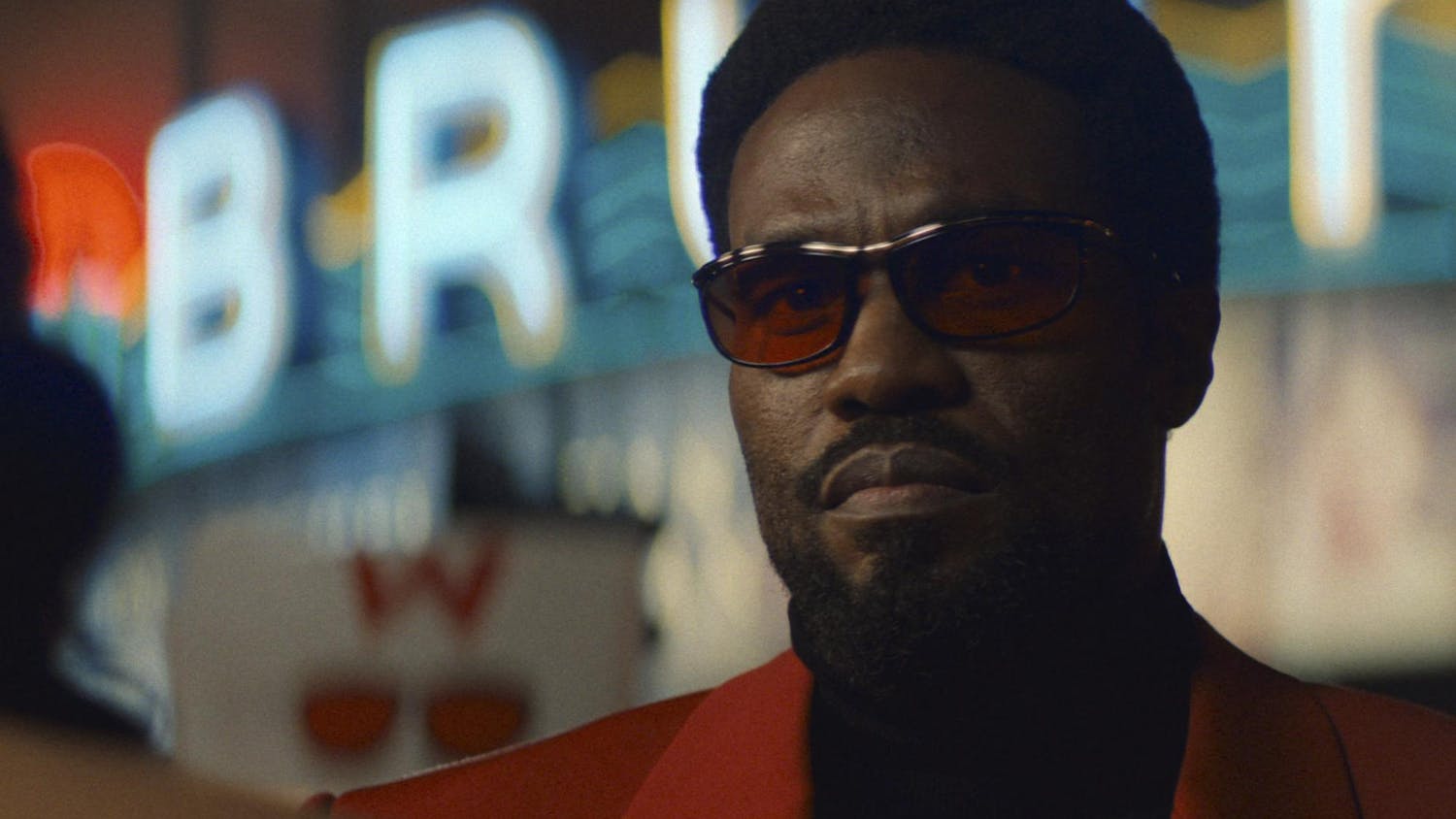Filmmaker Robert B. Weide’s documentary “Kurt Vonnegut: Unstuck in Time” looks at the life of Indiana-born author Kurt Vonnegut. In one moment, the film focuses on an asterisk-shaped illustration in his book “Breakfast of Champions.”
“This was the first hand-drawn illustration of the author’s asshole,” Weide said in the documentary.
On May 10, IU Cinema presented the documentary and a conversation with Weide to a nearly filled theater. The event was the first public event of the three-day literary arts festival, Granfalloon: A Kurt Vonnegut Convergence, which seeks to celebrate the life and work of Vonnegut.
Vonnegut is known for a satirical wit, dark humor, science-fiction elements and the perspectives on happiness and fulfillment in his novels. “So it goes,” a phrase from his 1969 novel “Slaughterhouse-Five,” embraces the idea death is inevitable and merely a part of the human experience.
In the documentary, Vonnegut recounted the death of friends from his past. A friend in the army died from disease in training camp. Another friend from his college fraternity died after hitting his head against a faucet. After each anecdote, Vonnegut let out wheezing, jovial laughter.
“The darkest things would make him laugh,” Weide said to the audience at the IU Cinema screening. “He was a hearty laughter. He loved humor.”
Even when the documentary showed Vonnegut recounting his deceased siblings and parents at their old Indianapolis home, he withheld tears and anguish.
“It doesn’t make me sad at all," Vonnegut said. "It was a very happy time in the lives of these people."
When the Great Depression occurred and Vonnegut's family lost its home, the family struggled financially and emotionally. Saturday morning movies helped the young Vonnegut learn to take life less seriously, according to the documentary.
In “Breakfast of Champions,” Vonnegut writes himself in as a character and tells another character, Kilgore Trout, a science-fiction writer who remains in complete obscurity despite his nearly 100 novels, that Trout is a character in a book. Vonnegut once wrote a draft of “Slaughterhouse-Five” where he, as the author, calls the protagonist on the phone and tells him he’s a character in a book.
In the documentary, Vonnegut noted a fan once pointed out the recurring character, Trout, was a representation of Vonnegut and his psychological state. Trout's changes throughout the novels paralleled the author's challenges with literary success, failure, family and financial situations.
In “Breakfast of Champions,” Trout responds to Vonnegut.
“Here was what Kilgore Trout cried out to me in my father’s voice: ‘Make me young, make me young, make me young!'”, Vonnegut wrote in “Breakfast of Champions.”
After "Slaughterhouse-Five," Vonnegut was a celebrity who appeared on TV shows and commercials. When a talk show host asked Vonnegut how his life was, he chuckled.
“It’s practically over, thank God,” Vonnegut said.
For much of his life, Vonnegut was optimistic about America and the American dream, despite his critiques and satire of corporate and political power. Towards the end of his life, he experienced difficulty with his marriage and the political sphere, specifically regarding the invasion of Iraq and George W. Bush's role in it.
The Bush administration was a travesty to Vonnegut, Weide said.
“Dear future generations: please accept our apologies,” Vonnegut wrote in a 2006 art piece. “We were roaring drunk on petroleum.”
When Weide was doing research on the Vonnegut collection at the Lilly Library, he came across a piece of Vonnegut’s correspondence. It was a letter written 30 years ago in which the writer asked Vonnegut if he could make a documentary based on the author’s life.
It was the very letter Weide wrote before filming commenced in the 1980s. Until Vonnegut's death in 2007, the two remained close friends.
"What nobody prepares you for is losing your friends," Weide said. “I remember calling him on 9/11. This was another ‘So it goes’ moment for him.”
Through the satire, dark humor and critiques of institutional powers, government and society, Vonnegut maintained a sense of optimism and a search for happiness in society and his work.
“This is indeed an adorable universe,” Vonnegut said.




